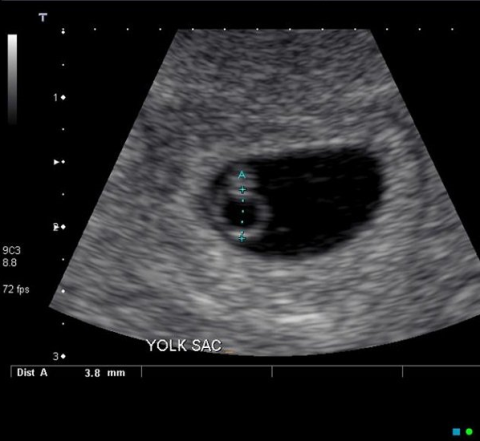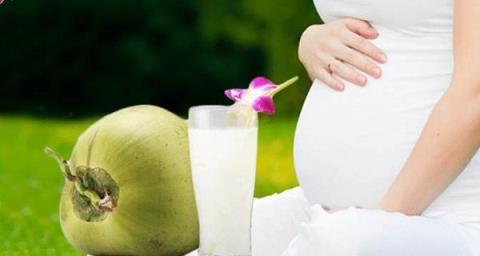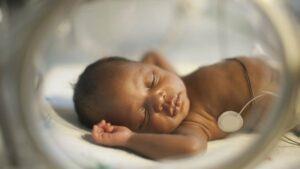Things to know about periodontal disease in pregnant women
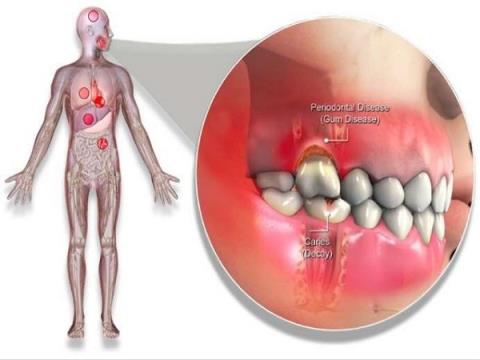
Periodontal disease in pregnant women can cause many complications for both mother and baby. Doctor Truong My Linh will help you learn more about this issue

Periodontal disease in pregnant women: Researchers have shown that the disease can cause both mother and baby to experience many complications such as: the risk of tooth loss in the mother; preeclampsia, premature birth, low birth weight, and more. Especially if the mother has comorbidities such as diabetes. Periodontal disease usually begins with a bacterial infection in the gum tissue. They gradually destroy the underlying tissue and bone. If left untreated, a bacterial infection causes an inflammatory response in the body; can increase the depth of periodontal pockets (space between teeth and gums); causing gum recession and bone loss. Eventually, advanced periodontal disease causes teeth to become loose and eventually lost. Therefore, pregnant women should treat periodontal disease immediately to reduce the risk of complications before and after delivery.
content
Causes of periodontal disease in pregnant women.
Periodontitis is inflammation caused by bacteria that invade the connective tissues around the teeth such as gums and bones. The early stages of the disease can cause symptoms such as tender, red, and swollen gums. In severe cases, the gums can recede from the teeth. Connective tissues become loose, which can cause teeth to fall out.
It is thought that hormonal changes during pregnancy; especially a pronounced increase in estrogen and progesterone; may increase the risk of developing periodontitis. Other factors that may be involved include changes in blood flow to the gums.
Several studies suggest a role and effect of periodontitis in pregnancy. During pregnancy, changes in hormone levels promote an inflammatory response. Increases the risk of developing gingivitis and periodontitis. Even with good plaque control, 50%-70% of all women will develop gingivitis during pregnancy; commonly known as gestational gingivitis, due to changes in hormone levels. Gingivitis during pregnancy usually manifests in the second and eighth months of pregnancy; and is thought to be a consequence of increased levels of the hormones progesterone and estrogen, which can affect the small blood vessels of the gums, making the gums more permeable.
Complications of periodontal disease in pregnant women.
Pregnant women affected by periodontitis may have an increased risk of certain obstetric complications. Examples include: premature birth or low birth weight, miscarriage or early miscarriage, and preeclampsia. In particular, pre-eclampsia and premature birth are the main causes of death for the infected mother and fetus.
2.1/ Premature birth, low birth weight
Premature birth is defined as a baby born before 37 weeks of gestation. The international definition of low birth weight is an infant weighing less than 2,500 grams (WHO, 1984). The main cause of low birth weight is premature birth or premature rupture of membranes. Premature birth and low birth weight are considered to be the most relevant biological determinants of infant survival. Premature birth is a major cause of infant mortality and morbidity; at the same time causing economic and medical burden on society
The main factors causing low birth weight in infants are: high or low maternal age (> 34 years old or < 17 years); " alcohol="" or="" ma="" drugs="" in="" period="" period="" pregnancy="" pregnancy;="" increase="" blood="" pressure;=" " solid="" point="" mind="" reason;="" pregnancy; love="" status="" nutrition="" nutrition; urine="" sugar,="" infection=" " duplicate="" sugar="" birth="" sex,="" co="" knot="" death="">
Microbiological studies have shown that intrauterine infection may account for 25–40% of preterm births.
Microorganisms can enter the amniotic cavity by:
(1) ascending from the vagina and cervix;
(2) placental blood transfusion;
(3) accidental intrusion in invasive procedures
(4) retrograde spread through the fallopian tubes
This suggests that distant sites of infection (oral cavity) or sepsis can target the placental membrane. Maternal susceptibility to oral infections increases gingival susceptibility to pathogenic bacteria present in dental biofilms.
This is a concern because low birth weight infants weighing less than 5.5 pounds can be prone to long-term disabilities such as: developmental delays in motor skills poor social development and learning disabilities. . Premature babies have similar risks. Same breathing problems, loss of vision or hearing, and gastrointestinal problems.
Although it has been observed that babies born to mothers with periodontitis are more likely to be born prematurely or with low birth weight. But it's still not clear why this is the case. Results were normalized for other factors, such as lifestyle and dietary factors, but there appeared to be an independent association between periodontitis and the risk of low birth weight and low birth weight babies. young.
2.2/ Preeclampsia
Preeclampsia (TSG) is a complication recognized by gestational hypertension and proteinuria. This is one of the most important health issues during pregnancy. Affects 8% to 10% of total pregnancies. Endothelial inflammation and endothelial cell dysfunction with altered placental vascular development are thought to be central to the pathogenesis of preeclampsia.
Maternal periodontal disease at birth is associated with an increased risk of developing preeclampsia. The risk of preeclampsia in women with periodontal disease during pregnancy was more than two-fold increased compared with controls. Research shows that women with pre-eclampsia also have more severe periodontitis than healthy pregnant women. It is caused by a significant increase in the gingival fluid concentration of PGE-2, interleukin (IL)-1 P; and tumor necrosis factor alpha (TNF-a). The study also found more serious periodontal infections in pregnant women with preeclampsia. In the presence of: P. gingivalis, T. forsythensis, and E. colli than in healthy controls.
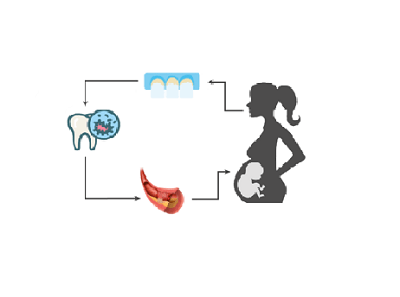
Complications of periodontal disease can affect the fetus
3/ Mechanism of impact of periodontal disease on pregnant women.
There are many reasons why periodontal disease affects the health of the mother and fetus such as:
Prostaglandins:
Periodontal disease can increase prostaglandin levels in pregnant women; especially in mothers with more severe forms of the disease. Prostaglandin is a labor-inducing compound found in one of the strains of oral bacteria that have been linked to periodontitis. Elevated levels of prostaglandins can lead to premature birth and low birth weight babies.
C-reactive protein (CRP)
This protein has been linked to heart disease. It is also associated with adverse effects during pregnancy. Includes pre-eclampsia and preterm birth. Periodontal infections increase C-reactive protein levels and amplify the body's natural inflammatory response. Periodontal bacteria can enter the bloodstream causing the liver to produce CRP. This leads to inflamed arteries as well as possible blood clots. These inflammatory effects can then lead to blocked arteries causing a stroke or heart attack.
Bacteria spread
Bacteria that reside in periodontal pockets can easily travel through the bloodstream. Affects other parts of the body. Research has found that oral bacteria and related pathogens have taken up residence in the mammary glands and coronary arteries.
4/ Diagnosis and treatment
There are many safe, non-surgical treatment options available to pregnant women. The most important thing is to stop the progression of periodontal disease to increase your chances of a safe and healthy delivery.
Initially, the dentist will accurately assess the condition of the gums and jawbone to make an accurate diagnosis. Scaling and root planing are two common non-surgical procedures; Used to remove tartar (tartar) on root surfaces and remove bacterial toxins from gum pockets.
The benefits of this treatment for a pregnant woman are numerous. The risk of pregnancy complications caused by periodontal disease will be reduced by up to 50%; and these treatments will alleviate many of the unpleasant harms associated with gingivitis and periodontal infections.
Dentists can educate pregnant women on effective home care. Minimize risks that may affect the health of the mother and fetus. The risk of periodontal disease can be greatly reduced with proper home care. It could be stopping smoking, changing your diet, and taking a vitamin supplement.
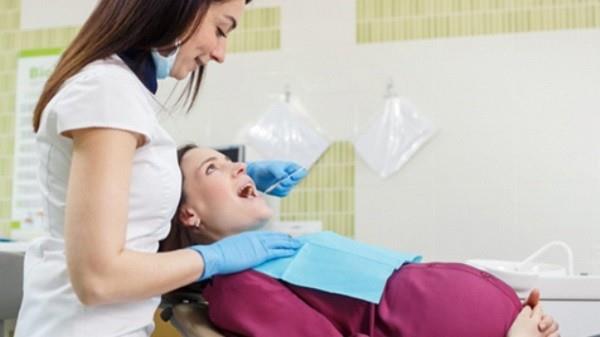
Dental care during pregnancy helps prevent periodontal disease
5/ Recommendations for pregnant women
It is especially important for pregnant women to take good care of their teeth during pregnancy. Prevents oral health problems, such as periodontitis.
First, self-care is very important. Pregnant women are encouraged to brush their teeth at least twice a day and floss daily. This helps to remove plaque around the teeth and gums on a regular basis. The use of mouthwash can also be helpful in some cases.
Dental check-ups and care during pregnancy are generally considered safe. This can play an important role in removing plaque and bacteria that can cause infections and possible complications for the mother and fetus. For this reason, pregnant women are encouraged to have regular dental visits throughout their pregnancy.
However, some dental procedures are used in the treatment of periodontitis; such as scaling and root canal treatment, it is best done between 14 and 20 weeks of gestation to ensure safety for pregnant women.
>>> Bleeding gums during pregnancy is also a problem that mothers need to pay attention to. See more about bleeding gums here!
Periodontal disease is a common disease during pregnancy that is mainly caused by hormonal changes in the body. The complications of this disease can seriously affect both mother and unborn baby. Therefore, mothers need to have a good oral care regime and prevent and treat periodontal disease when necessary.
Dr. TRUONG MY LINH
Periodontal disease in pregnant women can cause many complications for both mother and baby. Doctor Truong My Linh will help you learn more about this issue
The article by Doctor Nguyen Lam Giang about cough during pregnancy is one of the issues that pregnant women feel worried about. Let's find out with SignsSymptomsList.
The yolksac, also known as the yolk sac, is a small, membranous structure located outside of the embryo. There are many different functions in embryonic development.
Doctor Le Ngan Cam Giang's article on whether to drink coconut water during pregnancy is a question many people ask.
Lung maturation injection helps fetal lungs develop more quickly. Learn about the benefits and side effects of this injection with SignsSymptomsList.

